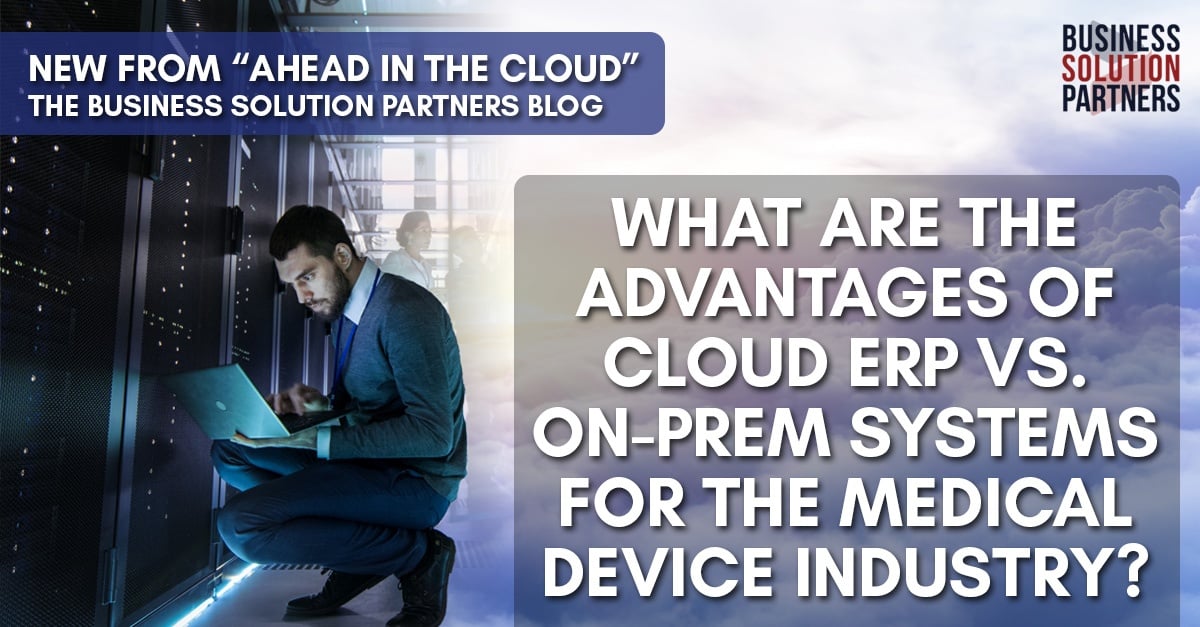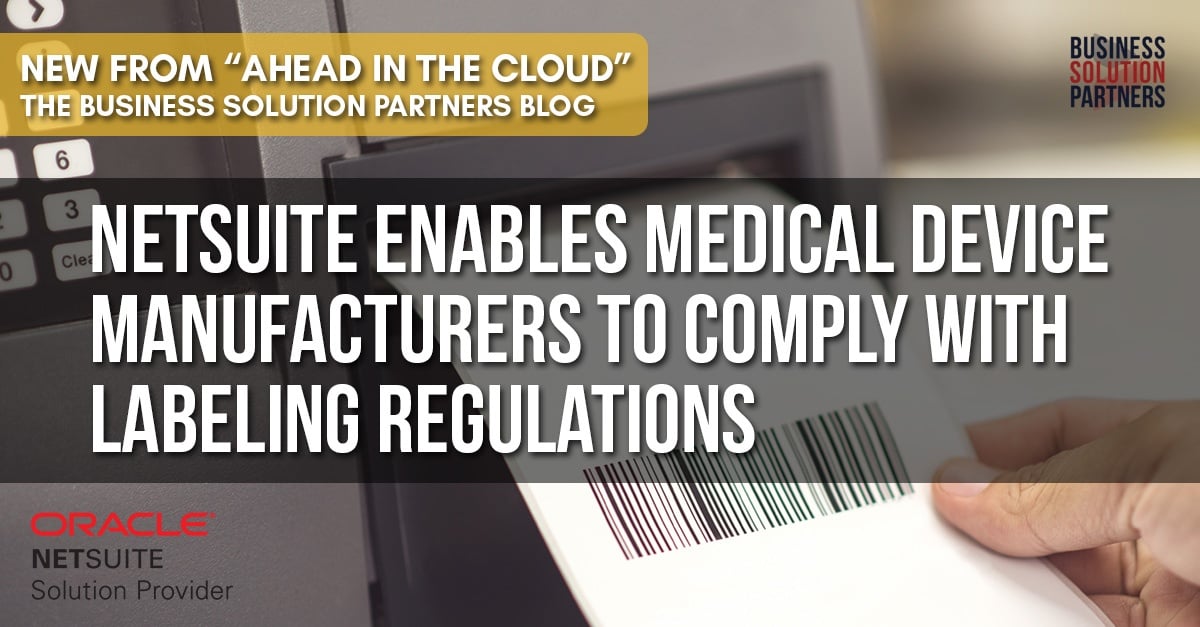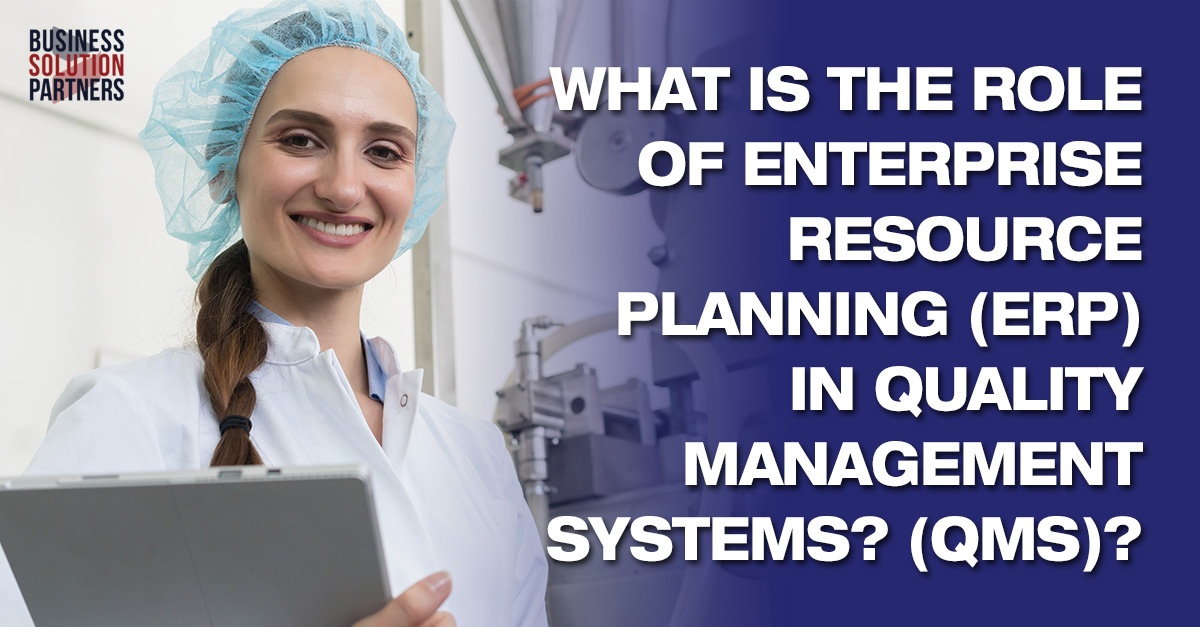NetSuite Enables Labeling Compliance For Medical Device Manufacturers
The primary objective of Medical Device labeling is to ensure that patients in need, and practitioners providing care, can access clear, accurate and...
2 min read
 Craig Cook
:
Oct 11, 2018 3:28:00 PM
Craig Cook
:
Oct 11, 2018 3:28:00 PM

Aging populations around the world have underpinned the growth in the medical device industry in recent years. KPMG forecasts that this trend will continue with global annual sales rising from nearly $500 billion in 2020 to approximately $800 billion in 2030.
This growth is occurring despite potential headwinds from strict regulatory requirements, governments trying to control health care costs and a rapidly changing competitive environment.
Companies that don’t want to get stuck in the middle of the value chain or with a commoditized product, need to adopt technology, such as cloud-based enterprise resource planning (ERP) systems, that could give them an edge. Already there’s been a notable shift from building IT to consuming IT.
According to the McKinsey ITaaS Cloud Survey, the percent of enterprises using traditionally built IT infrastructure will drop from 77% in 2015 to 43% by 2018. The report shows that companies of all sizes are moving to cloud-based solutions.
It’s not just a fad; here are five reasons why it makes good business sense to use cloud-based ERP rather than on-site systems in the medical device industry:
One of the main advantages of the cloud is the potential for cost savings. Instead of a large upfront capital expenditure to install on-site tech, companies pay for cloud-based ERP implementations using a subscription model, which shifts costs to operating expenses. CAPEX vs. OPEX - ask your CFO which they prefer...
PWC estimates that, “the total cost of ownership for a cloud-based solution can be 50 to 60 percent less than for traditional solutions over a ten-year period.”
Part of this cost savings would come from lower labor costs. Companies won’t need as much IT support staff to maintain data center operations. This is handled by the vendor and covered in the company’s subscription fees.
Cloud-based solutions also offer time savings, which could mean financial savings, during implementation. In general, these systems have a standard configuration that is quick to get up and running. The roll out mainly depends on the transition of business processes to the new system.
Cloud-based vendors that offer additional automation capabilities can help companies streamline more than just resource management.
Increased integration of business processes provides greater data clarity which helps companies make better decisions. This is incredibly valuable for the medical device industry as it can help improve supply chain management.
Medical device companies face the challenge of wanting to adopt new technologies while adhering to government regulations. A cloud-based ERP that integrates with other parts of the business can help these companies stay on top of ever-evolving changes.
In order to stay competitive in the medical device manufacturing vertical, companies need to adopt solutions that increase the value of their ERP deployments, such as cloud-based ERP that improve their cost structure and strengthen their business processes.
Offerings such as NetSuite, which go beyond ERP, connect multiple touchpoints on the value chain and provide enhanced data visibility that can give companies the competitive edge they need in this environment.

The primary objective of Medical Device labeling is to ensure that patients in need, and practitioners providing care, can access clear, accurate and...

Companies in the Medical Device field rely heavily on the accuracy, consistency and transparency of the Quality Division. This vital department is...

Medical Device Manufacturers know... All processes associated with designing, manufacturing, packaging, labeling, storing, installing, or servicing a...